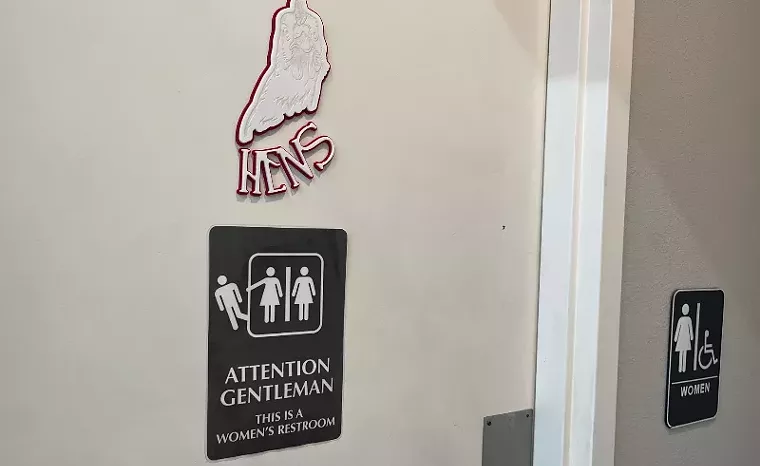Lawmakers Signal Special Session is Ending Soon With No Movement on THC Reform
The Texas Legislature passed a slew of bills in record time, knocking out high-priority GOP legislation on redistricting, the STAAR test, abortion, and bathroom safety, and nonpartisan laws to strengthen youth camp regulations and disaster preparedness. But THC reform — once designated the sole reason a special session was called — has stalled in the House of Representatives.
The Legislature’s second 30-day special session began on August 15, following a two-week quorum break in which more than 50 House Democrats fled the state to avoid voting on a congressional redistricting map that they claim is racially discriminatory. Republicans have been working feverishly to make up for lost time, and they’ve also signaled that they’re ready to go home now.
University of Houston political science professor Brandon Rottinghaus said it looks like lawmakers are close to the finish line and will not call a third special session. That means THC reform is likely dead in the water, the professor said.
“Regulating something this broad and financially impactful was going to be a challenge regardless of when it happened,” Rottinghaus said. “For them to put it last means it’s probably not going to happen. It’s a politically very dicey issue where many of the other things that passed were easier for Republicans to present on a unified front. [Legislators] are ready to go back to their real lives, and I think THC reform is going to be one of the casualties.”
While the Democrats were away, the lawmakers who stayed in Austin teed up their priority bills, which were sure to pass in the majority-GOP House and Senate once a quorum was restored, Rottinghaus said.
“Republicans were coiled up and ready to pounce,” he said. “Once the Democrats came back, the floodgates were open and the Republicans were foot on the gas, straight ahead, no brakes, with their legislative agenda.”
But it appears that THC and the powerful multibillion-dollar hemp lobby proved too challenging to tackle in just 30 days, the professor added.
“THC is a little harder because it cuts across the ideological spectrum,” he said. “It’s a much more challenging political issue to deal with. As a policy matter, the regulatory approach is going to be something that they want to take a more careful look at. A 30-day session is not going to be enough to do everything they need to do to put these regulations in place.”
“Regulation of something this important and financially impactful, on the fly, would be a potentially serious problem for the state,” he added. “They have to get it right, and I think as a result they wanted to just take a knee and wait until they can have more time to study the issue.”
Lt. Gov. Dan Patrick once lauded the THC ban as one of the most important pieces of legislation facing the state government, calling it a life-or-death issue. A previous iteration of what is now Senate Bill 6 was approved by both chambers in the regular session that ended in June but vetoed by Gov. Greg Abbott.
The governor, at the time, was facing pushback from the hemp industry and said he wanted to make revisions before signing it into law. Patrick’s ban would prohibit the sale of products containing any detectable amount of cannabinoid other than CBD and CBG, non-intoxicating components of cannabis.
Sen. Nathan Johnson, D-Dallas, proposed alternative bills that push for regulation and decriminalization. Neither has gotten a hearing. If no action is taken on the ban, political experts say hemp-derived THC will remain legal in Texas but manufacturers and distributors should expect more enforcement of the laws already on the books.
Under current law, products like smokable vapes, gummies, candy, and drinks may not contain more than 0.3 percent concentration, or intoxicating levels, of THC. There has been little enforcement in the past, according to the Texas Tribune, because of the burden it places on the criminal justice system to test the products and cite retailers who have mislabeled packages.
The House convened on Tuesday at noon. Calendar items included HB 18, which would ban lawmakers from raising money while breaking quorum, and SB 54, which aims to remove bureaucratic voter registration hurdles for residents who move within the same county and don’t have a current address on their voter ID card. The THC bill hasn’t yet been scheduled for a House committee hearing.
Rottinghaus said that even if nothing else happens before the Legislature gavels out, the accomplishments of the second special session have been impressive.
“The number of bills and the scope of bills have been pretty successful in advancing the governor’s agenda,” he said. “A lot of these things were pent up and had already been vetted before the Democrats broke quorum and so now this is just executing some of the discussion that was either public or had already been talked about in legislative chambers. This is the culmination of a lot of demand.”
Redistricting
The most contentious item on Governor Abbott’s massive special session agenda was congressional redistricting. Republicans acknowledged publicly that it was an effort to secure five GOP seats in the U.S. House; Democrats labeled it a power grab from President Trump.
After Democrats returned from the quorum break, the map swiftly passed the House on August 20 and the Senate on August 23. Abbott signed it into law a few days later. Amid accusations that the map exhibits racial gerrymandering and violates the Voting Rights Act, a federal court hearing is set for October.
Flood Bills
Nonpartisan legislation to improve emergency response and impose safety standards for youth camps was filed soon after 137 people died in the July 4 Hill Country floods.
The bills stalled during the quorum break, with Democrats accusing the GOP of putting redistricting before the flood victims and Republicans saying they could have passed the laws sooner if the Dems hadn’t fled the state.
The Heaven’s 27 Camp Safety Act passed on August 22 and disaster preparedness legislation, including civil warning sirens to alert residents of severe flooding, was also approved.
STAAR Test
After years of debate over how to better administer standardized testing in public schools, both chambers voted last week to eliminate the STAAR test and replace it with three shorter exams staggered throughout the year.
Rottinghaus said the Democrat walkout actually unified Republicans on the STAAR test when previously they hadn’t been able to reach a compromise.
“They were pretty far apart in the regular session with some pretty significant differences,” he said. “With enough time and some incentive from Democrats to unify, Republicans were able to find a path forward on STAAR testing.”
Lt. Gov. Patrick said in a statement that the new system, which will be implemented in 2027, is a victory for Texas parents, educators, and students.
“For far too long, Texas students and teachers have been burdened by the STAAR test, a cumbersome one-size-fits-all assessment that fails to actually measure student educational achievement,” he said. “The Texas Senate passed HB 8 to phase out the STAAR test once and for all, replacing it with a system to assess student growth and improve educational outcomes.”
Republican Priorities
Following the contentious, nationally publicized quorum break, Republicans used their leverage to pass a “bathroom bill” and stricter abortion laws.
“Now it’s become a process issue where Republicans are not willing to play nicely and pursue a standard legislative process,” Rottinghaus said. “They want to push things as fast as they can because they want to get out of town. My guess is that, regardless, we would have seen a lot of these bills pass, but it was the way in which they passed that definitely illustrated a lot of hard feelings between Republicans and Democrats.”
The widely criticized abortion bill passed on August 28, after Republican lawmakers rejected “every single Democratic amendment designed to protect Texas women from preventable deaths,” according to Texas House Democrats and the Texas Women’s Health Caucus.
Texas already has one of the most restrictive “near total” abortion bans in the country, meaning women can’t get a legal abortion but they could order medication online from another state. Attorney General Ken Paxton has pursued prison time for midwives allegedly offering care or resources to women who are seeking to terminate a pregnancy.
The new law allows private citizens to sue anyone who manufactures, distributes, mails, prescribes or provides abortion medication for a minimum of $100,000 and “creates a slush fund system where bounty hunters can direct nearly all their winnings to extremist organizations,” according to those who oppose it.
“This law will kill Texas women, and Republicans know it,” said Texas House Minority Leader Rep. Gene Wu, D-Houston. “This extremist legislation puts Texas politicians in charge of women’s medicine cabinets while creating a surveillance state where your neighbors can profit from reporting your medical decisions.”
A sign at Gibsons hardware store in Weatherford designates that only those who are assigned women at birth are permitted in a women’s restroom.
Photo by April Towery
The bathroom bill, Senate Bill 8, was approved last week after hours of testimony that went late into the night. Some opponents refer to it as “legalized bathroom stalking” and say it is designed to create “bathroom witch hunts for political profit against Texans across the state.”
Rep. Jessica González, Texas House LGBTQ Caucus chair, said in a statement that the bill is a “hateful and disrespectful attack on transgender Texans [that] puts millions of innocent, vulnerable lives, including those of children, at risk by encouraging vigilantism in public spaces, all to score political points for Republicans.”
There’s confusion about how the law prohibiting those whose birth gender is female from using male restrooms and vice versa will be enforced. Some speakers during the floor debate questioned whether women with short hair who favor slacks over dresses will have to carry their birth certificates with them when they use the restroom. A $25,000 fine can be assessed against government facilities that don’t comply with the law. Individuals will not be fined.
Wu said, “The bathroom witch hunt bill is nothing but another cruel political stunt from Republicans who continue to target vulnerable Texans instead of addressing the real challenges facing our state.”
The Independent Women’s Law Center and the nonprofit Texas Values praised the Texas Legislature for being one of 17 states to legally define “man” and “woman.”
“It is long overdue that we put protections in place for women and girls in their private spaces in Texas,” said Mary Elizabeth Castle, director of government relations for Texas Values. “No woman or girl in the gym locker room should have to constantly look over her shoulder to see if a man is there watching her shower or undress. Our Texas legislature has made the message loud and clear: You don’t mess with Texas women and their dignity.”
Another GOP-backed bill, which will allow Texans to purchase ivermectin over the counter from a pharmacy, was widely debated on the House floor and passed 88 to 51 on August 27.
What’s Left
Rottinghaus said that of the remaining items that haven’t been addressed, more attention could be given to property taxes, taxpayer-funded lobbying, and punishment for quorum breakers, but there’s nothing that has to happen.
“We haven’t seen a lot of overt pressure from the governor,” Rottinghaus said. “That’s not his style exactly, especially when it comes to a broad agenda. He’ll identify specific things and then push those, but in general, he’s not telling the legislature to do everything on his list. That would be impractical. We haven’t seen much pressure from him, but I think [Speaker of the House Dustin] Burrows feels the pressure.”
The professor emphasized that this is a part-time legislature and it’s reasonable to expect that they may return soon to their families and professional obligations.
“It’s probably to [Abbott’s] benefit to take a victory lap, take credit for what’s been done and let the legislators go home,” he said.

Reign Bowers is an outdoor enthusiast, adventure seeker, and storyteller passionate about exploring nature’s wonders. As the creator of SuperheroineLinks.com, Reign shares inspiring stories, practical tips, and expert insights to empower others—especially women—to embrace the great outdoors with confidence.





Post Comment